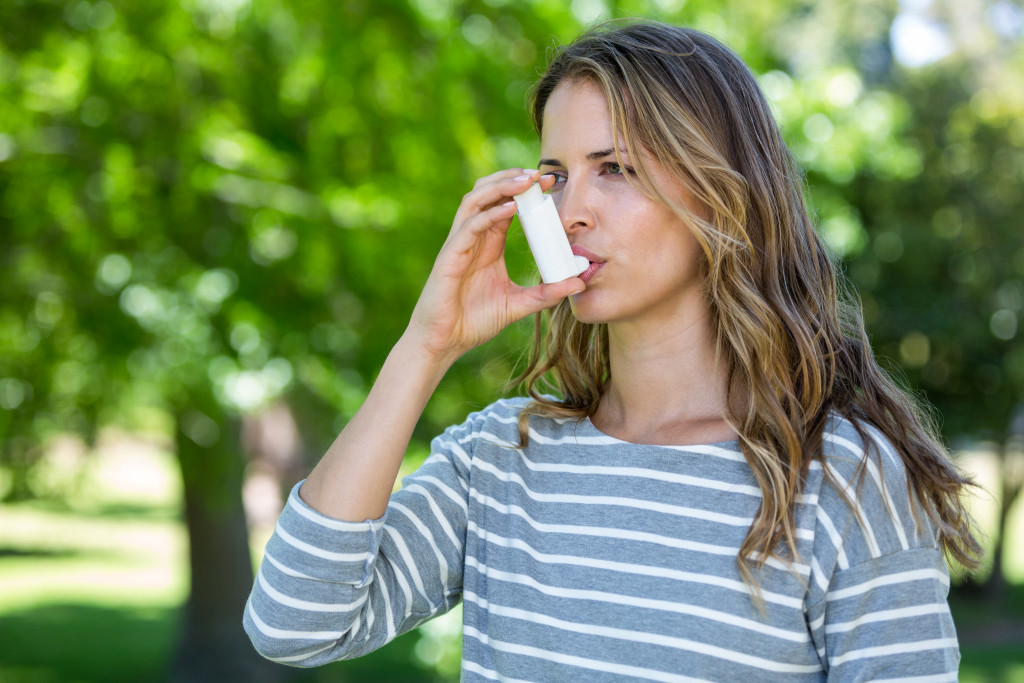Respiratory illnesses are illnesses that affect the respiratory system, which is the system in the body responsible for taking in oxygen and releasing carbon dioxide. The respiratory system includes the nose, throat, lungs, and airways.
There are many types of respiratory illnesses, including colds, flu, pneumonia, bronchitis, and asthma. These illnesses can be caused by a variety of things, including viruses, bacteria, environmental factors like pollution or smoke exposure, and genetics. Some respiratory illnesses are more serious than others and can be life-threatening.
Preventing Respiratory Illnesses
Here are 25 tips to prevent the development of respiratory illnesses.
1. Have your home tested for radon.
Radon is a gas that can be found in homes and is a leading cause of lung cancer. Having your home tested for radon can help protect you from this hazard.
2. Don’t use a wood-burning stove or fireplace.
Wood-burning stoves and fireplaces release pollutants into the air, which can irritate the respiratory system and increase your risk of getting a respiratory illness.
3. Avoid exposure to pollutants and other environmental hazards.
Exposure to pollutants and other environmental hazards can irritate the respiratory system and increase your risk of getting a respiratory illness.
4. Quit smoking.
Smoking is one of the leading causes of respiratory illnesses, such as bronchitis and emphysema. If you smoke, quitting is the best thing you can do for your lungs.
5. Avoid secondhand smoke.
Secondhand smoke is just as harmful as firsthand smoke, so it’s important to avoid exposure to it.
6. Keep your home clean and free of dust.
Dust can trigger asthma attacks and other respiratory problems, so it’s important to keep your home clean and free of dust mites.
7. Install an air purifier at home and at work.
Air purifiers can help reduce your exposure to environmental pollutants that can cause respiratory illnesses.
8. Use a humidifier at home and at work.

A humidifier can help keep your airways moist and prevent them from becoming irritated, which can lead to a respiratory infection.
9. Wash your hands regularly and often.
Washing your hands is one of the best ways to prevent the spread of viruses and bacteria that can cause respiratory illnesses.
10. Avoid touching your face.
Touching your face can increase your risk of getting a respiratory illness, since your hands may contain germs that can enter your nose or mouth.
11. Drink plenty of fluids.
Drinking plenty of water helps keep your body hydrated and prevents it from becoming dehydrated, which can make you more susceptible to respiratory illnesses. Fluids help keep your throat moist and prevent it from becoming irritated, which can lead to a respiratory infection. When you’re sick, staying hydrated also helps thin mucus so it’s easier to cough up.
12. Stay warm and dry in cold weather.
Cold weather can irritate the respiratory system and make you more susceptible to respiratory illnesses.
13. Get the flu vaccine every year.
The flu vaccine can help protect you from getting the flu, which is a serious respiratory illness.
14. Get the pneumonia vaccine.
The pneumonia vaccine can help protect you from getting pneumonia, which is a serious respiratory illness.
15. Get plenty of exercise.
Exercise helps keep your respiratory system healthy and strong.
16. Eat healthy foods.
Eating a healthy diet helps keep your immune system strong and reduces your risk of getting sick.
17. Avoid close contact with sick people.
If you know someone who is sick, avoid close contact with them to reduce your risk of getting sick too.
18. Get plenty of rest when you’re sick.
Resting gives your body the energy it needs to fight off a respiratory illness.
19. Take over-the-counter medication for cold and flu symptoms.
There are many over-the-counter medications that can help relieve cold and flu symptoms, such as fever, congestion, and a sore throat.
20. Gargle with warm saltwater.
Gargling with warm salt water can help relieve a sore throat and prevent respiratory infections.
21. Drink hot beverages.
Drinking hot beverages can help relieve congestion and soothe a sore throat.
22. Elevate your head when you sleep.
Elevating your head when you sleep can help relieve congestion and make it easier to breathe.
23. Use a nasal decongestant if you have a cold or the flu.
A nasal decongestant can help reduce swelling in the nasal passages and make it easier to breathe.
24. Get regular medical checkups.
Regular medical checkups can help identify any problems with your respiratory system and allow you to get treatment before it becomes serious.
25. See your doctor if you’re having difficulty breathing.
If you’re having difficulty breathing, see your doctor right away. It could be a sign of a more serious respiratory illness.
In conclusion, there are many things you can do to prevent respiratory illnesses. It is always best to prevent it rather than having to treat and manage it once it’s there. By following these tips, you can help keep your lungs healthy and reduce your risk of getting sick.




